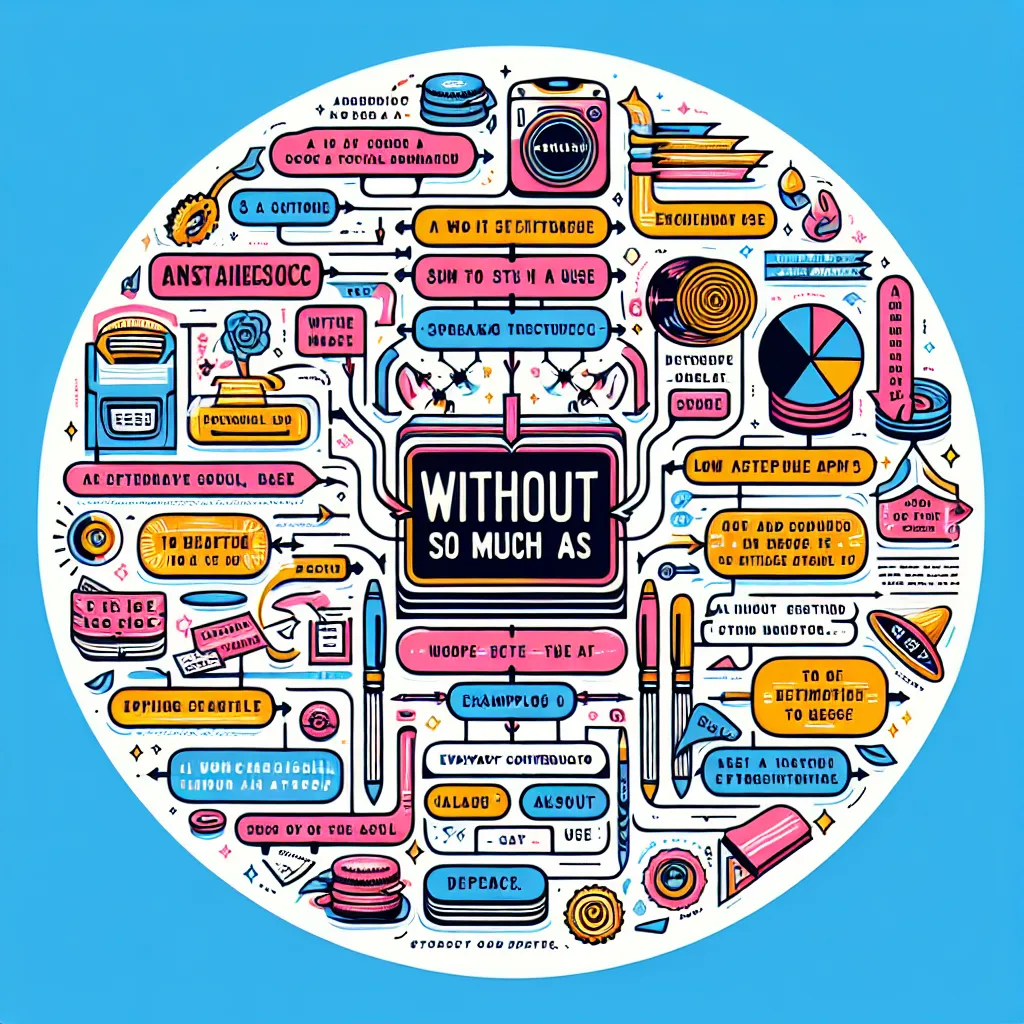The expression “without so much as” is a sophisticated phrase that can elevate your English writing and speaking skills, particularly in the IELTS exam. This article will delve into the meaning, usage, and application of this phrase, providing you with valuable insights to enhance your IELTS performance.
Understanding “Without So Much As”
The phrase “without so much as” is used to emphasize that someone did not do even the smallest or most basic action that might have been expected. It’s often employed to express surprise, disappointment, or criticism about someone’s lack of action or courtesy.

Grammar Structure
The basic structure of this phrase is:
[Subject] + [Verb] + [Object/Action] + without so much as + [Verb in -ing form / Noun phrase]
For example:
- He left without so much as saying goodbye.
- She rejected the proposal without so much as looking at it.
Using “Without So Much As” in IELTS Writing
Incorporating this phrase into your IELTS Writing task can demonstrate a high level of language proficiency. Here are some examples of how you might use it in different contexts:
-
Task 2 Essay on Social Behavior:
“In today’s fast-paced society, it’s not uncommon to see people rush past others without so much as a glance, highlighting the decline in social interactions.” -
Task 1 Report on a Process:
“The machine completes the entire packaging process without so much as a pause, demonstrating its efficiency and automation.” -
Task 2 Essay on Technology:
“Many young people spend hours on social media without so much as considering the potential negative impacts on their mental health.” -
Task 1 Letter of Complaint:
“I was shocked when the staff member dismissed my concerns without so much as an apology for the inconvenience caused.” -
Task 2 Essay on Environment:
“Large corporations often implement environmentally harmful practices without so much as a thought for the long-term consequences.”
Enhancing Your IELTS Speaking with “Without So Much As”
In the Speaking test, using this phrase can showcase your ability to use complex structures spontaneously. Here are some examples:
-
Part 2 (Cue Card) – Describing a Disappointing Experience:
“The concert ended abruptly, and the band left the stage without so much as an encore or a word of thanks to the audience.” -
Part 3 – Discussing Social Norms:
“In some cultures, it’s considered rude to enter someone’s home without so much as removing your shoes.” -
Part 1 – Talking About Your Neighborhood:
“My neighbor often plays loud music late at night without so much as considering how it might affect others.”
Advanced Usage and Band 9 Examples
To achieve a Band 9 score in IELTS, you need to demonstrate a full operational command of the language. Here are some sophisticated examples using “without so much as”:
-
“The government implemented the controversial policy without so much as consulting the affected communities, exemplifying a top-down approach to governance that disregards public opinion.”
-
“In an era of digital communication, it’s becoming increasingly common for people to terminate long-standing relationships without so much as a face-to-face conversation, raising questions about the depth and authenticity of modern interpersonal connections.”
-
“The multinational corporation relocated its manufacturing facilities without so much as considering the socio-economic impact on the local workforce, highlighting the often callous nature of globalization.”
Common Mistakes to Avoid
When using “without so much as,” be cautious of these common errors:
-
Incorrect verb form:
- Incorrect: “He left without so much as to say goodbye.”
- Correct: “He left without so much as saying goodbye.”
-
Misplaced modifiers:
- Incorrect: “Without so much as a word, the door slammed.”
- Correct: “He slammed the door without so much as a word.”
-
Overuse: While it’s a powerful phrase, using it too frequently can make your writing seem repetitive. Use it sparingly for maximum impact.
Conclusion
Mastering the use of “without so much as” can significantly enhance your IELTS performance, demonstrating a sophisticated command of English. Practice incorporating this phrase into your writing and speaking to elevate your language skills. Remember to use it judiciously and in appropriate contexts to maximize its impact on your IELTS scores.
To further improve your skills, try using this phrase in practice essays on topics like technological advancements, environmental issues, or changes in social behavior. This will help you become more comfortable with its usage and prepare you for the IELTS exam.